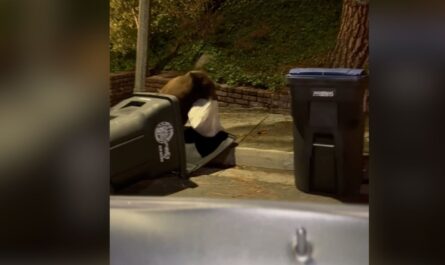North Port, FL — When 21-year-old Denise Amber Lee vanished from her North Port home in January 2008, her disappearance quickly turned into one of Florida’s most haunting cases — one that would transform how 911 calls are handled across the state.
Denise, a young mother of two, was home caring for her sons, Noah and Adam, when she was abducted in broad daylight. Her bravery and quick thinking during her final moments not only helped catch her killer but also exposed fatal gaps in emergency response systems that would later lead to sweeping reform.
The Disappearance and Desperate Search
On January 17, 2008, Denise’s husband, Nathan Lee, returned home from work to find their two young boys — ages 2 years and six months — alone in a crib. Denise was gone.
Nathan immediately called 911, reporting his wife missing. The call went to the Sarasota County 911 center, triggering a massive search operation. Denise’s father, Rick Goff, a sergeant with the Charlotte County Sheriff’s Office, joined the hunt for his daughter.
A neighbor soon told police about seeing a green Camaro parked in the Lee family’s driveway about an hour before Nathan came home — a detail that would soon become crucial.
Denise’s Brave 911 Call
In a chilling turn, Denise managed to call 911 herself using her abductor’s cellphone. On the recording, she could be heard pleading for her life while trying to secretly communicate her location.
“Please let me go. Please let me go. I just want to see my family again,” Denise said on the call.
Detective Chris Morales, the lead investigator, said the call confirmed their worst fears. “When that 911 call came in, we absolutely knew she was abducted,” he told ABC’s 20/20.
Investigators quickly traced the phone to Michael King, an unemployed plumber who owned a green Camaro and was facing foreclosure. In King’s home, police found a hair tie and duct tape with long brown strands, later confirmed to belong to Denise.
A Crucial 911 Call That Failed to Connect
That evening, another key call came in — this time from eyewitness Jane Kowalski, who saw a person screaming and pounding on the window of a green Camaro while driving down a highway.
“There’s a little window in the back and a hand’s coming up, hitting that window,” Kowalski told 911.
However, her call was routed to the Charlotte County 911 center, not Sarasota’s, where Denise’s case was being handled. The information wasn’t immediately relayed to the active search team. Instead, the details were written on a piece of paper rather than entered into the system.
Denise’s father later called it a devastating mistake:
“It was a major screw-up. When I say major, I mean it could have saved her life.”
An internal review confirmed procedural violations, and two dispatchers were disciplined, but officials insisted that even a timely dispatch may not have changed the outcome.
The Tragic Discovery
About five hours after Denise was reported missing, Florida Highway Patrol stopped King’s green Camaro. He was wet, muddy, and carrying a gas can and a dirty shovel. Inside the car, officers found a heart-shaped ring belonging to Denise.
Two days later, Denise’s body was discovered in a shallow grave nearby. She had been sexually assaulted, shot, and buried in the woods.
Read Also: California Woman Injured in Coyote Attack While Trying to Save Dog
King was charged with first-degree murder, kidnapping, and sexual battery. Despite his defense claiming the murder weapon was never recovered, the forensic evidence was overwhelming. The jury took less than two hours to convict him, and in September 2009, he was sentenced to death.
How Denise’s Legacy Changed Florida’s 911 System
Denise’s family turned their grief into advocacy. Her husband, Nathan Lee, founded the Denise Amber Lee Foundation, traveling nationwide to train emergency workers and raise awareness about 911 coordination failures.
Her sister, Amanda, became a 911 dispatcher, dedicating her career to improving response standards. Together, the family pushed for legislation that would ensure no other victim’s call went unheard.
Their efforts led to the Denise Amber Lee Act, which requires Florida 911 operators to complete over 200 hours of standardized training. The law has since been used as a model for national reforms in emergency response systems.
Today, Denise’s sons, Noah and Adam, now teenagers, continue to honor their mother’s memory.
“We’re a part of her,” said Adam. “People hearing from us can see how amazing she was — and how big the hole is because she’s not here.”
Do you think emergency dispatch centers are better prepared today than in 2008? Share your thoughts in the comments at race-day-live.com.


 by
by 

